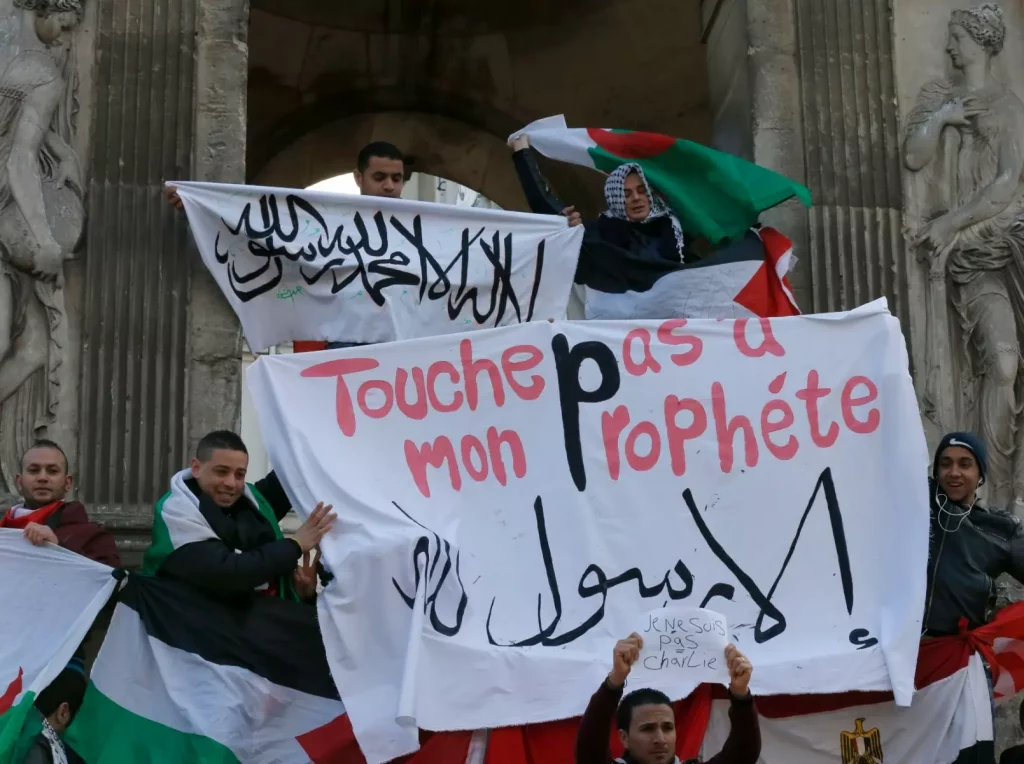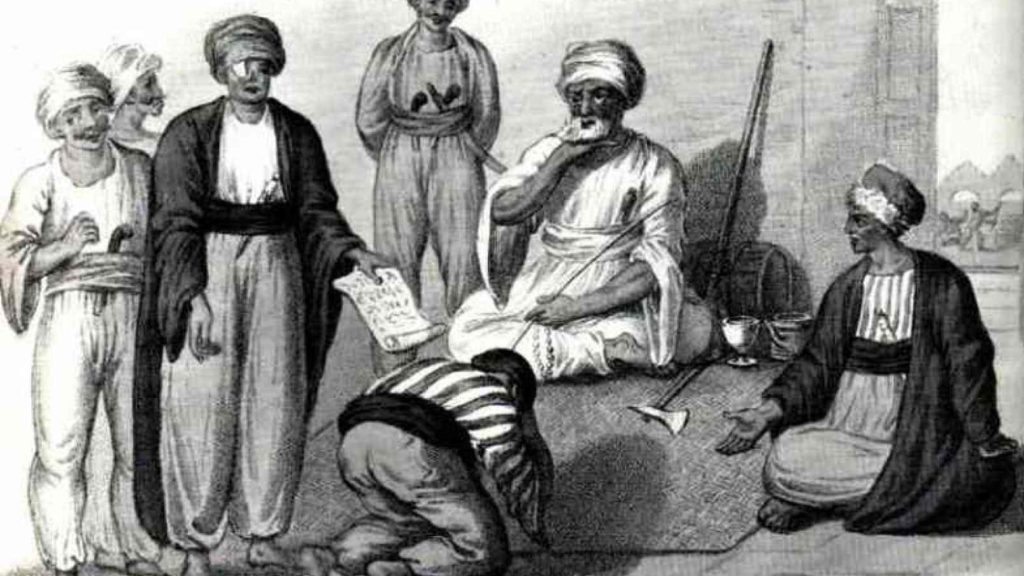
Under this heading, Shaykh Dr. Saʽd bin Fahd Al-Mājid, Secretary General of the Council of Senior Scholars in Saudi Arabia, wrote an article in the Al-Sharq Al-Awsaṭ newspaper[1] in which he defends Ibn Taymiyya and attempts to remove from him the charge of extremism. Anyone familiar with the literature of our heritage knows that Abū Ḥāmid al-Ghazālī the ‘Ḥujjat al-Islām’, Ibn Taymiyya the ‘Shaykh of Islam’, his student Ibn Qayyim al-Jawziyya, and Muḥammad ibn ‘Abd al-Wahhāb, the founder of Saudi Wahhabism, are the ones who established extremism in Islam.
THESE FIGURES INFLUENCED Abū al-Aʽlā al-Mawdūdī in India and Sayyid Quṭb in Egypt who produced for us the Muslim Brotherhood, the terrorist group condemned for violence and secret organization, and everything that emerged from its womb such as the Islamic Group founded by the blind Shaykh Muḥammad ‘Abd al-Raḥmān imprisoned in America for terrorism, and the Takfīr wa-Hijra group, the Lashkar-e-Toiba in Pakistan, and the Anṣār al-Sharīʻa, and many others.
Shaykh Saʽd says on the authority of Ibn Taymiyya:
The greatest crime of the extremists against him – who are in fact the furthest they could be from his approach, while he is as far above their extremism as you could imagine, for theirs is an extremism that has licensed spilling the blood of Muslims, the declaring of vast numbers as ‘infidel’, in addition to attacking peaceful Muslims. On this Ibn Taymiyya himself said that “we must thus beware of pronouncing takfīr on Muslims for committing sins and transgressions, since this takfīr was the first heresy that appeared in Islam, whereby they declared Muslims to be infidels and deemed their blood and money lawful.” We can thus see how Ibn Taymiyya differs from the extremists in various scholarly arenas and in practical matters… and in his methodology and behaviour. But for reasons of brevity we will simply choose two features.”
The first characteristic chosen by Shaykh Saʽd is the feature of forgiveness. On this he writes:
The first feature: Ibn Taymiyya’s demonstration of tolerance, whether in his scholarly discussions or in his practical ethics. Indeed, he a priori championed forgiveness even before adopting it as an attitude and a natural disposition. He thereby demonstrated the extent of the need for this, not only for Muslims among themselves, but also for all people, and that tolerance was indispensable for all their dealings and their public and private lives, and that without this tolerance neither faith nor worldly affairs can be conducted properly. This indicates that Ibn Taymiyya considered tolerance to be necessary and indispensable to mankind, something he cannot do without. On this he stated: “This is why God Almighty commanded hearts to be reconciled, so that He that reconciles in this way should receive a share of alms.[2]
It is clear here that the doctor Shaykh gives us only half of the truth and keeps the rest for himself. Neither Islam nor Ibn Taymiyya commanded forgiveness for all people, but only for other Muslims. And ‘those whose hearts are to be reconciled’ mentioned in the verse, are the leaders of the Quraysh who resisted Muḥammad in Mecca, whereupon Muḥammad tried to buy their submission to protection and entry into Islam with gifts and presents, just as he did when dividing the spoils following the battle of Hawāzin when he granted Abū Sufyān and the notable infidels of Mecca one hundred camels each. As for the rest of the infidels, the Lord of Islam said the following: [Fight those] until they pay the tribute readily, being brought low.[3] The Lord of the Qur’ān, and thereafter Ibn Taymiyya, did not attempt to ‘reconcile the hearts of the infidels’ and Ibn Taymiyya’s tolerance appears in his work titled الصارم المسلول على شاتم الرسول (The Unsheathed Sword against Those who Insult the Prophet). In it he states:
However, Al-Qāḍī in the work Al-Mujarrad mentioned those things that the people seeking dhimma protection[4] must abandon, things which are harmful to Muslims generally and individually regarding their life and their wealth. These are: lending aid to those that fight Muslims, killing a Muslim man or woman, waylaying them, or giving shelter to a polytheist spy, or testifying against a Muslim, such as by corresponding with polytheists with information concerning the Muslims, or committing adultery with a Muslim woman, or assaulting her under the guise of ‘marriage’, or seducing a Muslim away from his faith. He is to desist from this, unconditionally.
Clear here is Ibn Taymiyya’s opinion on the ‘people of the dhimma’, who constitute the majority of the population of the countries which the Muslims conquered by force, and to which Ibn Taymiyya’s tolerance does not apply. Notice how he says, “or assaulting a Muslim woman under the guise of ‘marriage’,” meaning that if a dhimmī marries a Muslim woman (which is not permissible in Islam), his covenant with Muslims is broken and his slaying is henceforth prescribed. And if he harbours a spy – even though Muḥammad had spies updating him about the infidels and their movements, spies whom he sheltered and granted good tidings of God’s pleasure upon them. But as for the dhimmī, if he harbours a spy, his covenant is broken and it is thus permitted for him to be killed. And as for waylaying the Muslims, which indicates the breaking of the covenant and necessitates the killing of the dhimmī, this is no different from the waylaying that Muḥammad and his army practiced at Badr and at other places when they ambushed the Meccan convoys. Yet it becomes a sin that deserves the killing of the dhimmī in Ibn Taymiyya’s opinion. I do not see any tolerance here in Ibn Taymiyya when he repeats these sayings in his books and thus urges Muslims to do likewise. The Shaykh of Islam then goes on:
The evidence for the fact that the covenant of a dhimmī is thus broken through insulting God, His Book, His religion, or His Messenger, and for the obligation to kill him and any Muslim ho commits this is: the Qur’ān, the Sunna, the consensus of the Companions and the Followers, and consideration”.[5]

Suggested Reading
Whoever then insults the Messenger or belittles him or his honour, be he an infidel or a Muslim, must be killed according to the Qur’ān, the Sunna, the consensus, and even legal ‘consideration’. That is why, when the Danish newspaper published cartoons insulting to the Messenger, demonstrations took place in which dozens were killed and churches and embassies burned all over the world. This is why the massacre of the Charlie Hebdo writers and illustrators took place in Paris. For they had detracted from the status of the Messenger, even though their own culture did not reserve a place for the ‘sacred’, criticism was thus permissible even of God himself, and even though they were not dhimmīs but free men and women in their own country. There is no doubt that these massacres took place because of Ibn Taymiyya’s tolerance, who urged the killing of the one who insults the Prophet. The doctor Shaykh, on the authority of Ibn Taymiyya went on to conclude:
And this shows the extent of the need for it [tolerance], not only for Muslims among themselves, but even for all people, and that tolerance is indispensable for them in their dealings and their public and private lives, and that without this tolerance neither faith nor worldly affairs can be conducted properly. This means that Ibn Taymiyya considers tolerance a necessity that none should neglect nor dispense with.
[1] March 11, 2015.
[2] The reference is to Qur’ān IX (al-Tawba), 60: إِنَّمَا الصَّدَقَاتُ لِلْفُقَرَاءِ وَالْمَسَاكِينِ وَالْعَامِلِينَ عَلَيْهَا وَالْمُؤَلَّفَةِ قُلُوبُهُمْ وَفِي الرِّقَابِ وَالْغَارِمِينَ وَفِي سَبِيلِ اللَّهِ وَابْنِ السَّبِيلِ فَرِيضَةً مِنَ اللَّهِ وَاللَّهُ عَلِيمٌ حَكِيمٌ The alms are only for the poor and the needy, and those who collect them, and those whose hearts are to be reconciled, and to free the captives and the debtors, and for the cause of Allah, and (for) the wayfarer; a duty imposed by Allah. Allah is Knower, Wise. (Ed.)
[3] Qur’ān IX (al-Tawba), 29.
[4] See Glossary.
[5] الاعتبار ’Consideration’ or mental and legal analogy.
Main image: French Muslims hold an Islamic flag and a banner reading “Do not touch my prophet, anything but the Messenger of Allah” in central Paris January 18, 2015, 11 days after the Charlie Hebdo attack.

